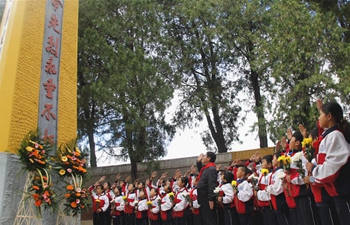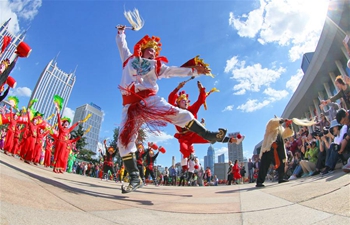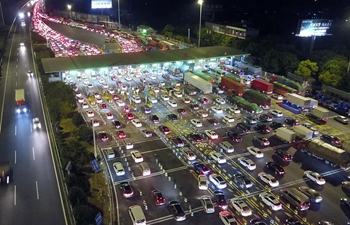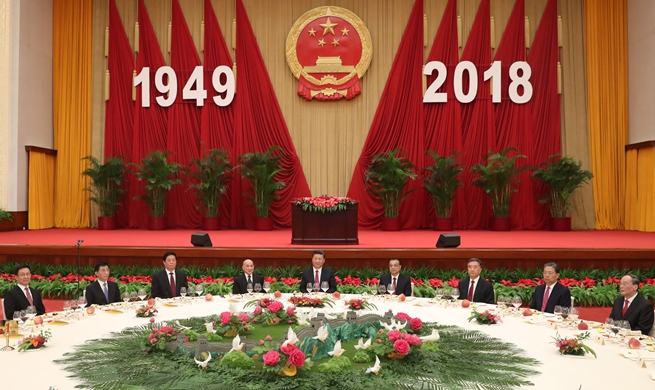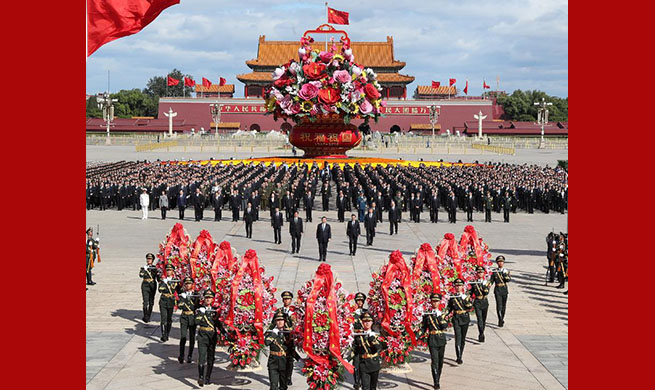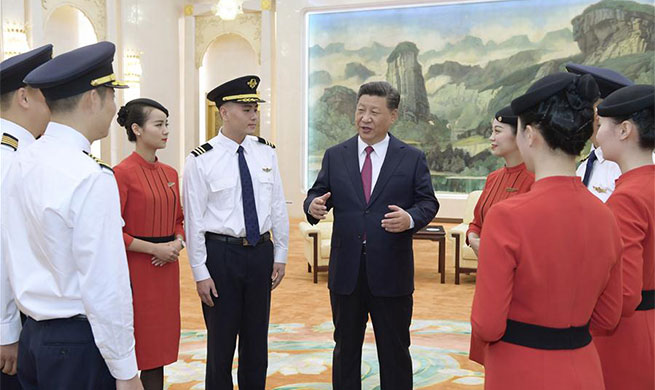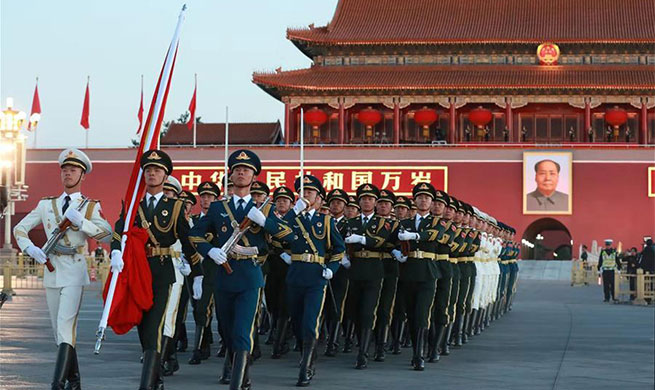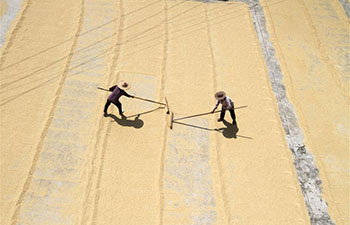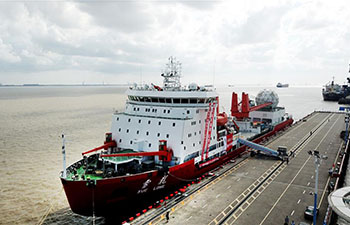DUBAI, Oct. 1 (Xinhua) -- The annual four-day Cityscape Global conference and exhibition started here on Monday amid sluggish demand for real estate and declining property prices across Dubai.
According to U.S. rating agency Standard and Poor's, the oversupplied Dubai real estate market would remain unattractive until 2020 when the six-month World Expo will open from October, 2020 to April, 2021.
Dubai's Emaar Properties, the developer of the world's tallest tower Burj Khalifa (828 meters) located in the heart of Dubai, does not participate at this year's Cityscape for the second consecutive year.
The share price of Emaar, a bellwether traded on the local exchange Dubai Financial Market, lost 35 percent in the last 12 months.
Real estate advisory firm JLL said that office rents have declined 13 percent year on year in the second quarter in Dubai due to sluggish demand, while leading to delays of some new construction projects.
Plummeting property prices affect the entire UAE economy, a major oil supplier.
Earlier on Sunday, the International Monetary Fund (IMF) said in its latest e-mailed assessment of the Gulf state's macroeconomic prospects, "the UAE economy continues to adjust to a prolonged decline in oil prices since 2014." Dubai is one of the seven emirates belonging to the federation.
The IMF added that "non-oil activity remains subdued amid continued corporate restructuring, real estate overhang and tightening financial conditions."
Tourists and business travelers also noticed that the number of "To Let" signs across prime locations such as Jumeirah Road increased sharply in recent months.
Brokers told Xinhua that British investors became less generous when buying property in the Gulf Arab emirate due to the looming Brexit.
According to Dubai-based economist Dr. Nasser Saidi, former chief economist of the Dubai International Financial Center (DIFC), bilateral trade between UAE and Britain fell by 15.2 percent year on year to 6.6 billion U.S. dollars in the first half of this year amid a weakening pound sterling and rising uncertainty about future ties between Britain and the European Union.
In order to lure more commercial tenants, the Dubai government has lowered license fees in most of the industrial free zones. Dubai Airport Free Zone, for example, slashed business setup costs by up to 65 percent, said the free zone which hosts firms like French defense and tech giant Thales Group and Germany's car giant Volkswagen.
Nevertheless green shoots are visible, too.
On Sunday, Arif Amiri, the CEO of the DIFC Authority, said that 98 percent of office space in the financial center's 49-million-dollar building "The Exchange" has been leased within months after completion.
The Exchange will host the Nasdaq Dubai, the sole international capital market in the region.
The IMF is likewise optimistic as oil rebounded to a four-year high above 80 U.S. dollars per barrel (159 liters) last week, and because the UAE government announced on Sunday the biggest federal (and balanced) budget ever of 16.40 billion U.S. dollars for 2019, representing a 17.3 percent increase compared to the current year.
"With oil production and government spending set to rise, overall growth is projected to strengthen to 2.9 percent this year and 3.7 percent next year," said the Washington-based, global financial stability fund.




